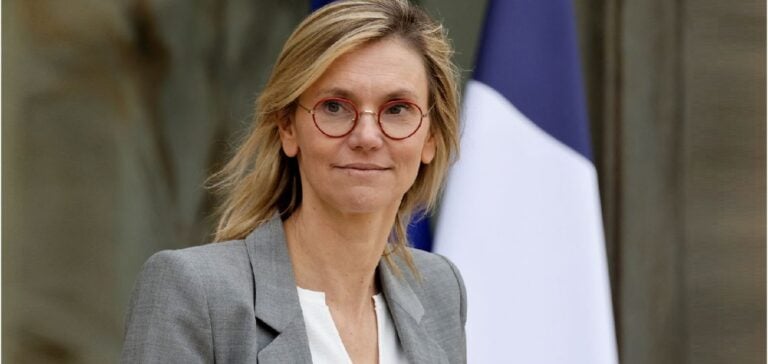The Minister of Ecological Transition, Agnès Pannier-Runacher, maintains her central role in the fight against climate change and the decarbonization of the French economy, according to a decree published in the Official Journal. While her ministry no longer oversees energy, key responsibilities remain under her purview, including representing France in international climate negotiations.
Under the government led by François Bayrou, her ministerial portfolio was reshaped to include new competencies. Renamed the “Ministry of Ecological Transition, Biodiversity, Forests, Seas, and Fisheries,” it now reflects a stronger focus on critical environmental priorities, such as carbon sinks. However, energy production now falls under the jurisdiction of Marc Ferraci, Minister of Industry and Energy.
Climate responsibilities retained
Ms. Pannier-Runacher continues to play a strategic role in ecological and energy planning in collaboration with the Prime Minister and other ministries. She also remains France’s chief representative at the Conferences of the Parties (COP) on climate, with her role reaffirmed in overseeing the implementation of international agreements.
The upcoming COP30, scheduled for November in Belém, Brazil, and the resumption of COP16 on biodiversity in February in Rome, are expected to be critical events on her agenda. These milestones underscore the importance of her mandate in global negotiations.
Decarbonization and energy efficiency
Although energy management now falls under Bercy, Ms. Pannier-Runacher continues to promote energy efficiency and the energy transition in France. Key initiatives such as MaPrimeRenov for housing, ecological bonuses for transportation, and industrial decarbonization remain part of her responsibilities, in coordination with other ministries.
Forests, seas, and fisheries: new challenges
In addition to her traditional responsibilities, the minister now oversees forests, seas, and fisheries—domains previously linked to the Ministries of Agriculture and Partnerships with the Territories. Managing these carbon sinks introduces new strategic coherence, although balancing economic production and environmental preservation will require careful arbitration.
These additions reinforce her role in forest renewal and the timber industry, closely aligned with the Ministry of Agriculture for silvicultural matters. Similarly, the sustainable management of marine ecosystems has become a priority.





















